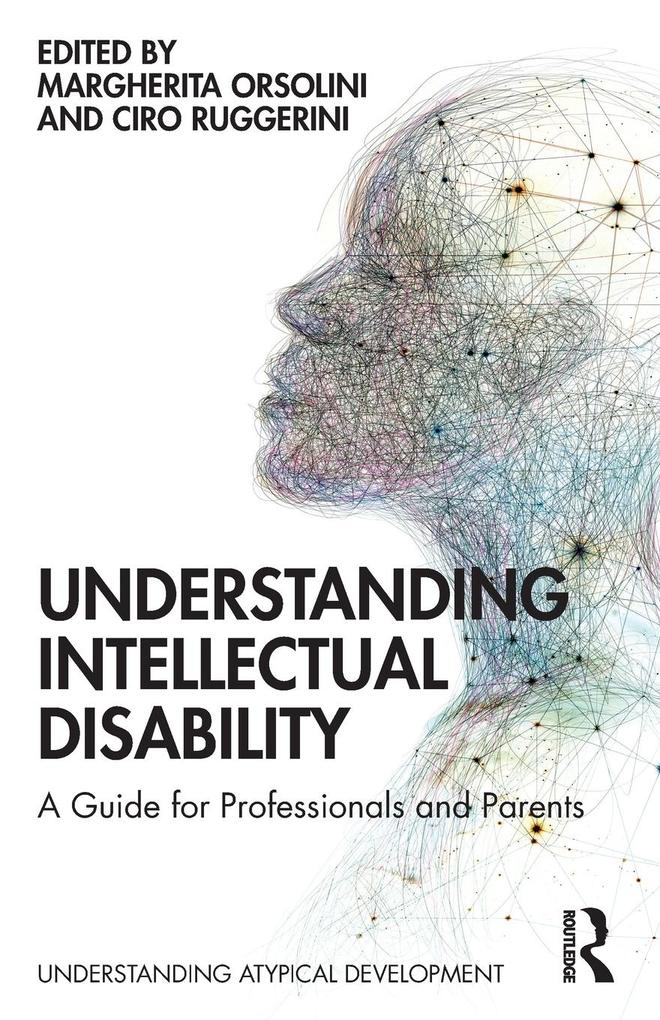
Zustellung: Mo, 19.05. - Do, 22.05.
Versand in 6 Tagen
VersandkostenfreiBestellen & in Filiale abholen:
This book provides a novel approach to understanding children who have been diagnosed with intellectual disabilities (ID). This book explores the signs, symptoms and diagnosis of ID, together with dynamic perspectives on assessment, and consideration of treatment, therapy, and interventions for those living with the condition.
Understanding Intellectual Disability: A Guide for Professionals and Parents supports professionals and parents in understanding critical concepts, correct assessment procedures, delicate and science-infused communication practices and treatment methods concerning children with intellectual disabilities.
From a professional perspective, this book relies on developmental neuropsychology and psychiatry to describe relevant measures and qualitative observations when making a diagnosis and explores the importance of involving parents in the reconstruction of a child's developmental history. From a parent's perspective, the book shows how enriched environments can empower children's learning processes, and how working with patients, families, and organizations providing care and treatment services can be effectively integrated with attachment theory. Throughout seven chapters, the book offers an exploration of diagnostic procedures, new insights on the concept of intelligence and the role of communication and secure attachment in the mind's construction. With expertise from noteworthy scholars in the field, the reader is given an overview of in-depth assessment and intervention practices illustrated by several case studies and examples, as well as a lifespan perspective from a Human Rights Model of disability.
Understanding Intellectual Disability is an accessible guide offering an up-to-date vision of intellectual disability and is essential for psychologists, health care professionals, special educators, students in clinical psychology, and parents.
Things are connected through invisible bonds: you cannot pluck a flower without unsettling a star.
Galileo Galilei
Inhaltsverzeichnis
1. A Rose is a Rose but what is Intellectual Disability?
Ciro Ruggerini and Antonina Pellegrino
2. Is Intelligence a General Mental Capacity?
Margherita Orsolini, Francesca Federico and Sergio Melogno
3. Assessments of Children with Developmental Delays and Intellectual Disability
Margherita Orsolini, Sara Conforti, Sergio Melogno
4. Intervention to Empower Children's Learning
Margherita Orsolini and Sergio Melogno
5. Attachment and Intellectual Disability: Promoting Secure Attachment in Relationships
Furio Lambruschi, Ciro Ruggerini, and Melvin Piro
6. Not Just Telling: Narratives and the Construction of Shared Understanding in Interaction
Marilena Fatigante, Samantha Salomone, Margherita Orsolini
7. Personal Identity, Desire, Life Project
Ciro Ruggerini, Stefania Musci, Aldo Moretti
Mehr aus dieser Reihe
Produktdetails
Erscheinungsdatum
26. Dezember 2022
Sprache
englisch
Seitenanzahl
240
Reihe
Understanding Atypical Development
Herausgegeben von
Ciro Ruggerini, Margherita Orsolini
Verlag/Hersteller
Produktart
kartoniert
Abbildungen
13 SW-Abb., 1 SW-Fotos, 12 SW-Zeichn., 19 Tabellen
Gewicht
308 g
Größe (L/B/H)
216/140/13 mm
ISBN
9781032115399
Entdecken Sie mehr
Bewertungen
0 Bewertungen
Es wurden noch keine Bewertungen abgegeben. Schreiben Sie die erste Bewertung zu "Understanding Intellectual Disability" und helfen Sie damit anderen bei der Kaufentscheidung.












